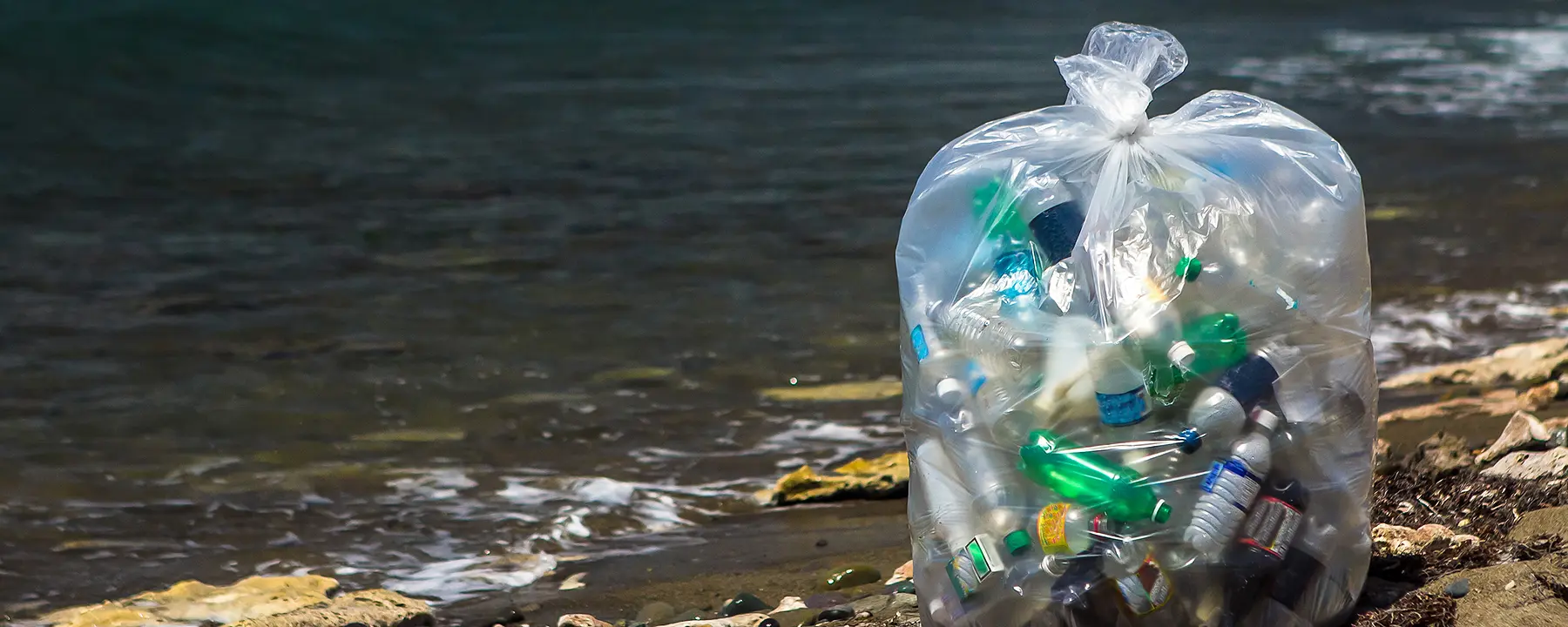Objective
To identify context-appropriate, complementary technological and behavioral strategies to reduce the volume of plastic waste entering Jamaica’s nearshore ocean waters via four gullies that feed directly into Kingston Harbor.
Approach
Our cross-disciplinary team conducted a global scan of evidence-backed, behavioral and technology-based interventions that successfully reduce land-based plastic waste from entering waterways. We reviewed active solid waste, recycling, and climate-oriented policy discussions in Jamaica, and used interviews and focus group sessions with community members to adapt our proposed strategies to the Kingston community before making a recommendation for intervention.
Impact
Our approach to this work combines physical waste capture with behavioral interventions that provide incentive and opportunity for local communities to dispose of waste differently, including through community-based micro-businesses. By addressing waste disposal challenges at their source, Kingston is working toward improved marine environments, enhanced climate resilience, and improved community health and hygiene. Our model could be adapted to other Island and Caribbean nations where waste management and ocean plastic reduction presents an enduring challenge.
Climate change is worsening the plastic pollution problem
In Jamaica and other Caribbean nations, climate change is increasing the intensity of hurricanes, tropical storms, and other extreme weather events that cause flooding. While this alone is devastating to Island nations, flooding impacts from increasing storm intensities are heightened, and more plastic is washed into the nearshore marine environment from local communities, in areas where solid waste management infrastructure, planning, and alternatives are lacking.
Kingston, Jamaica's network of gullies play a critical role in diverting stormwater into the Kingston Harbor and away from the densely developed urban areas, which can easily flood as the frequency and intensity of storms increase due to climate change. In some Kingston neighborhoods, public solid waste collection is limited, prompting residents to dispose of their household rubbish in nearby gullies. During storms, this waste, which has a high plastic content, is washed into the Harbor. Excessive waste loading in gullies also blocks the flow of stormwater through them, contributing to localized urban flooding, road blockage and erosion, and economic losses.
With support from the World Bank’s PROBLUE initiative, RTI and our partner, Jamaica-based MDK Consulting, began exploring strategies that combined technological and behavioral interventions to reduce plastic waste from entering four of Kingston’s gullies and for capturing the waste before it entered the Harbor. RTI’s team sought solutions that were context-appropriate, cost-effective, sustainable, and transferrable to other urban settings, both within Jamaica and the broader Caribbean region, while providing local economic opportunities.
Assessing Jamaica’s waste management landscape
RTI economic and policy experts conducted a rapid assessment of plastic recycling and waste management efforts underway in Jamaica, which is changing quickly under numerous internal and external investments in solid waste management. These investments are driven by the needs of a growing population and ongoing public and private concern for climate resilience and environmental stewardship. Jamaica is building its solid waste and recycling infrastructure and instituting policies and regulations to move towards a circular economy, including construction of sanitary landfills, solid waste transfer stations, waste-to-energy infrastructure, and proposed incentives for plastic bottle returns to encourage recycling. A desire for change, and opportunities to dispose of waste differently, was also clear at the community level; conversations with community leaders identified concern about the solid waste problem and a willingness to engage in initiatives providing municipal solid waste disposal alternatives in their neighborhoods.
Drawing on RTI’s extensive international experience in solid waste management and water resources engineering, experts identified potential technological solutions for plastic waste capture and removal from gully-like waterways that could be adapted to Jamaica’s unique circumstances. These solutions were assessed for fit for Kingston using climatic data on rainfall and structural data on Kingston’s gullies.
At RTI, we know that one solution does not fit all. Solutions need to be appropriate for local conditions and context, the policy environment, and the appetite for change. We further tested strategies to determine their cost, their ‘fit’ within the set of existing policy changes and investments, and their acceptability to community members and public officials. This refinement resulted in the design of a multi-pronged strategy to reduce plastic waste from entering Kingston Harbor.
A Multi-Pronged Strategic Approach to Tackling Plastic Pollution in Jamaica
We identified solutions that prioritize ocean plastic reduction, climate resilience, and flood risk management amid existing and emergent changes in solid waste management in Jamaica.
Infrastructural Intervention: Semi-Instream Waste Capture Technology
Kingston Harbor currently includes several very successful waste booms at several gully outlets that capture floating waste. RTI identified an infrastructure-based solution to sit upstream of the gulley mouth to provide an initial point of waste capture before plastics and other trash enter the Harbor (floating or not). This technology can be easily bypassed within the gully when heavy rains and flooding is imminent. The goal of this recommendation is to reduce the amount of plastic waste that can physically enter Kingston Harbor by complementing existing infrastructure and capturing waste on land, which eases its collection and processing as municipal solid waste or recycled plastic.
We proposed installing an appropriately sized, semi-instream waste capture technology physical structure in designated gullies. The structure includes a diversion gate, holding chambers, bollards (i.e., short, vertical posts), a separation wall, and gradated screens, all of which are relatively simple and inexpensive to construct. The structure serves as a physical barrier that allows water to flow through the gully as trash is collected via physical separation behind the barrier. The water flow can be regulated through a diversion gate to prevent flooding in adjacent neighborhoods during periods of extreme high flows or excessive loading and blockage. Solid waste that collects behind the barrier is regularly removed for proper disposal after a storm event. This technology has been successfully implemented in other locations and is well-suited to the high-gradient flows, high volume of waste, and highly populated, urban environment of Kingston.
Behavioral Intervention: Last-Mile Community-Based Micro Waste Collection and Micro Businesses
The goal of this recommendation is to provide alternative waste disposal options in communities adjacent to gullies to avoid waste from entering gullies in the first place; to provide economic opportunities in areas where employment is low; and to empower community members with agency to take care of their own communities and environments.
This behavioral intervention begins with the development and institution of waste collection micro-businesses in Kingston’s communities where public waste collection is highly limited or lacking altogether. Supported by a community-based organization, local community members would receive training and technical assistance to collect solid waste from the community for transfer to a skip or authorized facility. This “last-mile” intervention connects these neighborhoods to the existing solid waste management system in communities it currently does not reach. Funded initially through grant funding and later supported by a plastic bottle refund scheme (under consideration) and public waste operations, this intervention gives income generating opportunities in communities challenged by low employment and economic opportunity. This approach to “upstream” waste management was favored by community members, who felt it would be welcome in their neighborhoods.
The intervention would then be supported with a public education and social marketing campaign, particularly in schools, that focuses on reducing flood risks, increasing climate resilience, and improving livelihoods and economic opportunity.
Integrating Behavioral and Technological Solutions for Sustainable Impact
We applaud the World Bank for its leadership in recognizing the importance of integrated behavioral and technological solutions and acknowledging that for sustainable results, multi-pronged strategies are critical. Clients and funders are expressing greater interest in solutions that include a behavioral component, which is often needed for community buy-in and lasting benefits from interventions. To realize the potential benefits of these proposed solutions, continued engagement, testing, and piloting is needed.
Using our global experience and cross-sectoral expertise into the specific and dynamic context of Kingston has been both interesting and rewarding, particularly applied in the Caribbean setting, where solid waste management and ocean plastic challenges are ongoing. We hope to continue our work in the Caribbean region, where we have many strong partners who share our mission of identifying innovative, integrated solutions that address the expanding challenges of climate change.
- MDK Consulting



